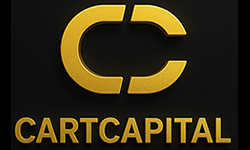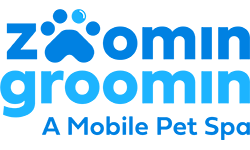-
Find a Business
Find the right business for you
-
SmartPicks®
Let Artificial Intelligence find the right franchise for you!
Browse Businesses by Category
- Automotive Businesses
- Business Opportunities
- Business Services
- Child-Related Businesses
- Cleaning Businesses
- Computer, Ecommerce & Internet
- Education Businesses
- Financial Services Businesses
- Food & Restaurant Businesses
- Health & Fitness Businesses
- Healthcare & Senior Care Businesses
- Home Services Businesses
- Home-Based Businesses
- Low Cost Businesses
- Mobile Businesses
- Personal Care Businesses
- Pet Care Businesses
- Printing, Copy, Shipping Businesses
- Real Estate Businesses
- Retail Businesses
- Sports and Recreation Businesses
- Staffing and Personnel Businesses
- Travel & Lodging Businesses
- Vending Machine Businesses
- Veteran's Businesses
What motivates YOU to want to own your own businesss?
These are the top reasons cited by thousands of business buyers.
What is YOUR reason?
Share Your Vote last updated: 07-05-2025
last updated: 07-05-2025
Most Active Franchises
These franchises have received the most inquiries among thousands of prospective buyers in the last month.




Want to buy an existing business or franchise for sale?
Currently listed in California
Businesses For Sale
Businesses Have Owner Financing
What Kinds of Businesses are Most Interesting to Buyers Now?
What is a Small Business Startup?
Are you involved in an actual business startup or are you just starting a small business? A significant difference between a startup and a small business is the projected growth. “Startups”, usually have multiple founders and their goal is to shake-up and significantly disrupt the current marketplace with the idea and grow extremely fast.
So, how is a small business different? The SBA defines a small business as a "for-profit business of any legal structure, independently owned and operated, not nationally dominant in its industry or category."Mainly, the growth intent of a startup is extremely different from the intent behind most small businesses that folk's, simply “startup”. For our purposes, we'll concentrate on everyday people starting up a small business which they intend to nurture and grow slowly and steadily over many years.
Small Business Market Research
Market research looks at consumer behavior and economic trends to confirm and hopefully improve on your small business idea. It is critical to fully understand your consumer base and demo. Sound research should reduce risks even while your business is just in the idea stage.
Compile as much demographic information possible to glean opportunities and limitations in the pursuit of landing customers. This data might include population data on age, wealth, family, interests, gender, spending habits and many more.
Ask yourself the following questions to get a good sense of your market. Demand: Is there a desire or need for your product or service? Market size: How many people would be interested in your service or offering? Economic Factors: What is the income range and employment rate in your market? Location: Where do your potential customers live and how far and wide can your business or services reach? Market saturation: How many similar companies, brands, options are already available in your area? Pricing: What is the demo currently spending for such goods or services in the area?
You can do market research using existing sources, or you can do the research yourself and go direct to consumers. The direct route is more time consuming and expensive. Start with your local Chamber of Commerce to get access to data that will be invaluable to you.
Small Business Startup Costs
Obviously, the costs of starting a small business will vary greatly depending on what industry and geographical area you are located in. But there are some common startup costs you're likely to have regardless of the industry. Licenses and Permits, Office Space, Business Insurance, Employee Salaries, Website and Marketing, etc.
Some on your list will have exact costs — permits and licenses for example. Some others such as employee wages, and office space you might have to research and guesstimate a little.
Once you've tightened up your list to the best of your ability, you should organize these expenses into “one-time” expenses and “monthly”, or ongoing expenses.
One-time expenses, or “hopefully”, one-time expenses are things like buying equipment, hiring a graphic designer to make a logo, a web designer, and permits, licenses, and fees. Usually, you can deduct one-time expenses for tax purposes, which will save you some money. Make sure to keep track of your expenses and talk to your accountant when it's time to file.
Monthly business expenses will include items such as salaries, rent, and utilities. Count at least one year of these monthly expenses, but five years is recommended for the bigger picture.
Once you have this list tightened up as much as possible you can use this info to request startup funding if needed. Investors and or lenders will want to compare these projected costs against projected revenue to determine if they are interested.
Small Business Startup Marketing Needs
The list is long in terms of potential marketing strategy and can vary wildly depending on the industry and market you're entering but it's safe to say you'll need a website, logo, company bio, services copy, hopefully some great testimonials, reviews, and a great offer!
After you have your website designed which typically will cost anywhere from $2k to $10k depending on custom features needed, you'll want to make some decisions on areas to focus your budget on to attract some solid leads. SEO, SEM, Email Marketing, and social media are all great places to get started and get in front of your prospects. All these marketing tactics can be done well for as low as a few thousand a month if you find the right team to help your small business.
Small Business Tax Write-Offs
Which small business tax write-offs or “deductions” are you eligible for? Be sure to talk to an accountant or professional tax preparation company about your company specifically but some of the following will be on the list: Advertising/marketing, Insurance, Business car, Business travel, Office Rent, Business meals, Salaries, Health benefits, Phone, Internet, and charitable donations.
Business Startup vs Business Opportunities
Yes, you always have the “opportunity” to start a small business but what we're talking about is “business opportunities” that already exist and don't require you to do all the heavy lifting yourself to get it off the ground and make it successful. There still exists a monetary investment but the brand is typically established in the market and has a proven track record of success. We call these “Franchise Opportunities” and there are many super exciting opportunities to investigate if you so choose.
You can browse franchise opportunities by industry, state, or by investment level. Some of the trending opportunities are starting as low as $10k to get in. The franchise categories include Auto, Beauty, Health Foods, Fitness, Pets, and many, many more. Please browse below to learn more about the opportunities trending right now.



